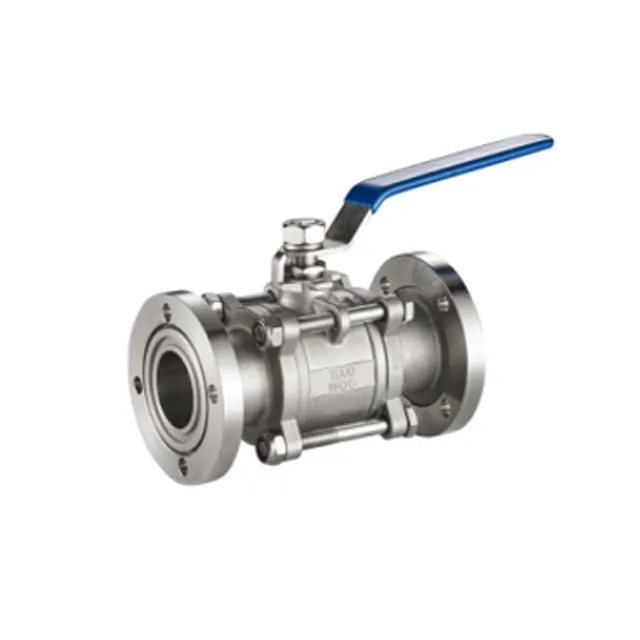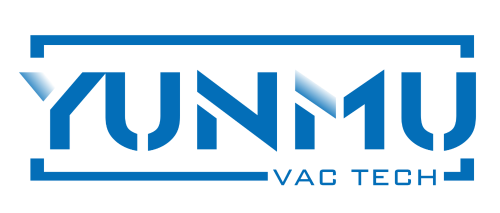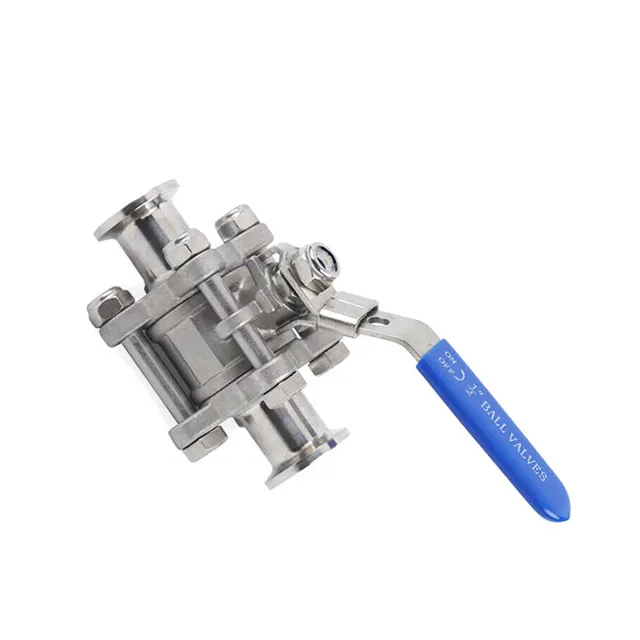Understanding the Impact of Quality in Vacuum Valve Performance
In industries where vacuum systems are critical, the role of vacuum valves cannot be overstated. These components control the flow and pressure within vacuum environments, ensuring processes run smoothly and safely. Choosing a high-quality vacuum valve makes a substantial difference in operational efficiency, longevity, and reliability. Such valves are engineered to withstand demanding conditions, deliver precise control, and maintain vacuum integrity, all of which are essential to a wide range of applications from semiconductor manufacturing to pharmaceutical production.
High-quality vacuum valves offer advantages that go beyond basic functionality. Their advanced design and superior materials contribute to reduced maintenance needs, energy savings, and enhanced system safety. Understanding these benefits is key to appreciating why investment in premium vacuum valves pays off in both the short and long term.
Enhanced Operational Efficiency with High-Quality Vacuum Valves
Precision Control in Vacuum Environments
One of the primary benefits of a high-quality vacuum valve is its ability to provide precise control over vacuum pressure and flow rates. Accurate modulation is crucial in processes where slight variations can impact product quality or system performance. Superior valve designs incorporate advanced sealing mechanisms and actuation technologies that minimize leakage and ensure consistent operation.
The precision of these valves also contributes to smoother process cycles and improved repeatability, which are vital for manufacturing industries that demand high levels of quality and consistency.
Durability Reducing Downtime and Maintenance
Vacuum valves are exposed to harsh conditions such as extreme temperatures, corrosive gases, and frequent cycling. High-quality vacuum valves are manufactured with robust materials like stainless steel and advanced alloys that resist wear and corrosion. This durability translates into longer service life and fewer replacements.
Reduced maintenance frequency means less downtime, which directly improves overall productivity and lowers operational costs. Reliable valves prevent unexpected failures that can halt production, making them indispensable for critical vacuum systems.

Safety and Reliability Benefits of High-Quality Vacuum Valves
Maintaining Vacuum Integrity and System Safety
Vacuum systems rely on maintaining tight seals to prevent contamination and pressure loss. High-quality vacuum valves are designed with superior sealing technologies, such as metal-to-metal or elastomer seals optimized for vacuum applications. These seals ensure that the vacuum environment remains stable and uncontaminated.
Ensuring vacuum integrity also enhances system safety, especially in applications dealing with hazardous or reactive substances. The valves’ ability to withstand high differential pressures and prevent leaks safeguards both equipment and personnel.
Consistent Performance in Demanding Applications
Vacuum valves used in industries like aerospace, pharmaceuticals, or research must perform consistently under varying and often challenging conditions. High-quality valves are tested and certified to meet stringent standards, guaranteeing reliable operation even in extreme environments.
This consistency allows engineers and operators to trust their vacuum systems for critical processes, knowing that the valves will function as expected without causing delays or defects.
Economic Advantages of Investing in High-Quality Vacuum Valves
Cost Savings Through Longevity and Efficiency
Although high-quality vacuum valves may come with a higher upfront cost, the long-term economic benefits are substantial. Their durability reduces the frequency of replacements and repairs, which lowers maintenance costs over time. Efficient sealing reduces energy consumption needed to maintain vacuum levels, contributing to operational savings.
When considering total cost of ownership, premium vacuum valves prove to be cost-effective solutions by minimizing downtime and enhancing system efficiency.
Reducing Environmental Impact
High-quality vacuum valves contribute to environmental sustainability by minimizing leaks and energy waste. Efficient valve operation means less energy is required to maintain vacuum conditions, resulting in lower greenhouse gas emissions from energy sources.
In addition, longer-lasting valves reduce waste generated from frequent part replacements. Organizations aiming to improve their environmental footprint find that investing in quality vacuum valves aligns with their sustainability goals.
Key Features to Look for in High-Quality Vacuum Valves
Advanced Sealing Technologies
Sealing technology is critical in determining valve performance. High-quality vacuum valves utilize state-of-the-art seals designed to maintain vacuum integrity over many cycles and temperature variations. Whether it’s a metal seal for ultra-high vacuum or a resilient elastomer for moderate vacuum, the right seal technology ensures reliability.
In addition, precision machining and surface finishes contribute to better sealing and lower leakage rates, which are hallmarks of superior valve construction.
Robust Construction and Materials
Materials selection plays a vital role in valve longevity and compatibility with various vacuum environments. Stainless steel, titanium, and specialty alloys offer corrosion resistance, mechanical strength, and thermal stability. These materials help the valves withstand aggressive gases and repeated use without degradation.
Robust construction also includes precision manufacturing processes and rigorous quality control, which collectively ensure that every vacuum valve meets high standards.
Integrating High-Quality Vacuum Valves into Your System
Compatibility and Customization
High-quality vacuum valves are often designed to be compatible with various systems and applications. Many manufacturers offer customization options such as different port sizes, actuator types, and control interfaces to meet specific process needs.
Proper integration ensures that the valve works harmoniously with existing components, optimizing system performance and ease of maintenance.
Technical Support and Service
Premium vacuum valve suppliers typically provide extensive technical support and after-sales service. This support can include installation guidance, troubleshooting, and maintenance advice, helping users maximize valve performance and longevity.
Reliable service relationships also mean faster resolutions to issues and access to genuine replacement parts when needed.
FAQ
What distinguishes a high-quality vacuum valve from a standard valve?
High-quality vacuum valves feature superior materials, advanced sealing technologies, and precise manufacturing, resulting in better durability, reliability, and performance.
How do high-quality vacuum valves improve system efficiency?
They reduce leakage and provide precise control, which lowers energy consumption and improves process stability in vacuum systems.
Can a high-quality vacuum valve handle corrosive gases and extreme temperatures?
Yes, these valves are constructed from materials and components designed to withstand harsh environments, including corrosive gases and wide temperature ranges.
What maintenance practices help extend the life of a vacuum valve?
Regular inspection, cleaning, timely seal replacement, and following manufacturer guidelines for operation and storage help maintain valve performance and longevity.
Table of Contents
- Understanding the Impact of Quality in Vacuum Valve Performance
- Enhanced Operational Efficiency with High-Quality Vacuum Valves
- Safety and Reliability Benefits of High-Quality Vacuum Valves
- Economic Advantages of Investing in High-Quality Vacuum Valves
- Key Features to Look for in High-Quality Vacuum Valves
- Integrating High-Quality Vacuum Valves into Your System
- FAQ

